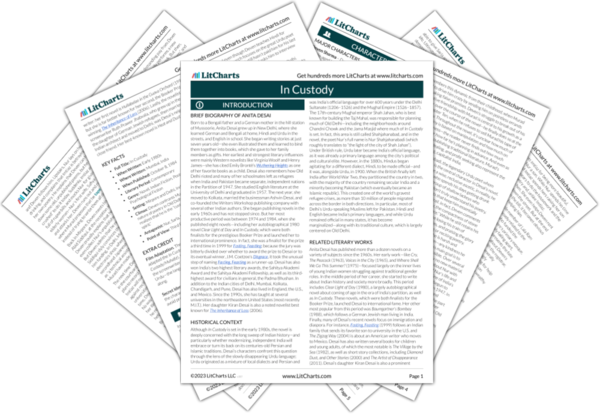The novel closes with the moment of personal transformation that Deven was waiting for all along: he has an epiphany about his relationship with Nur, which gives him the courage and moral clarity that he needs to finally take charge of his own life. In the past, he alternated between unrealistic optimism and defeatist pessimism: he either assumed that everything would work out in his favor or simply gave up and blamed other people for his failure. In no case did he take control of his life and his work—until now, when he realizes that he is responsible for Nur’s legacy and must do whatever is in his power to save it. Indeed, he spent the whole novel complaining about how Nur, Murad, and others selfishly mistreated and controlled him (or put him in their “custody”). But now, he sees that he was using them for his own selfish purposes, too. Namely, he was using them to advance his own career: he wanted to build a career off rediscovering and analyzing Nur’s work. So, he put Nur “in custody,” too—in other words, he took responsibility for how the world remembers Nur and his work. In this sense, Deven has achieved exactly what he wanted: he is now the person closest to Nur’s poetry—and to Nur’s “soul and spirit.” And he is arguably the new guardian of India’s Urdu poetic tradition.
